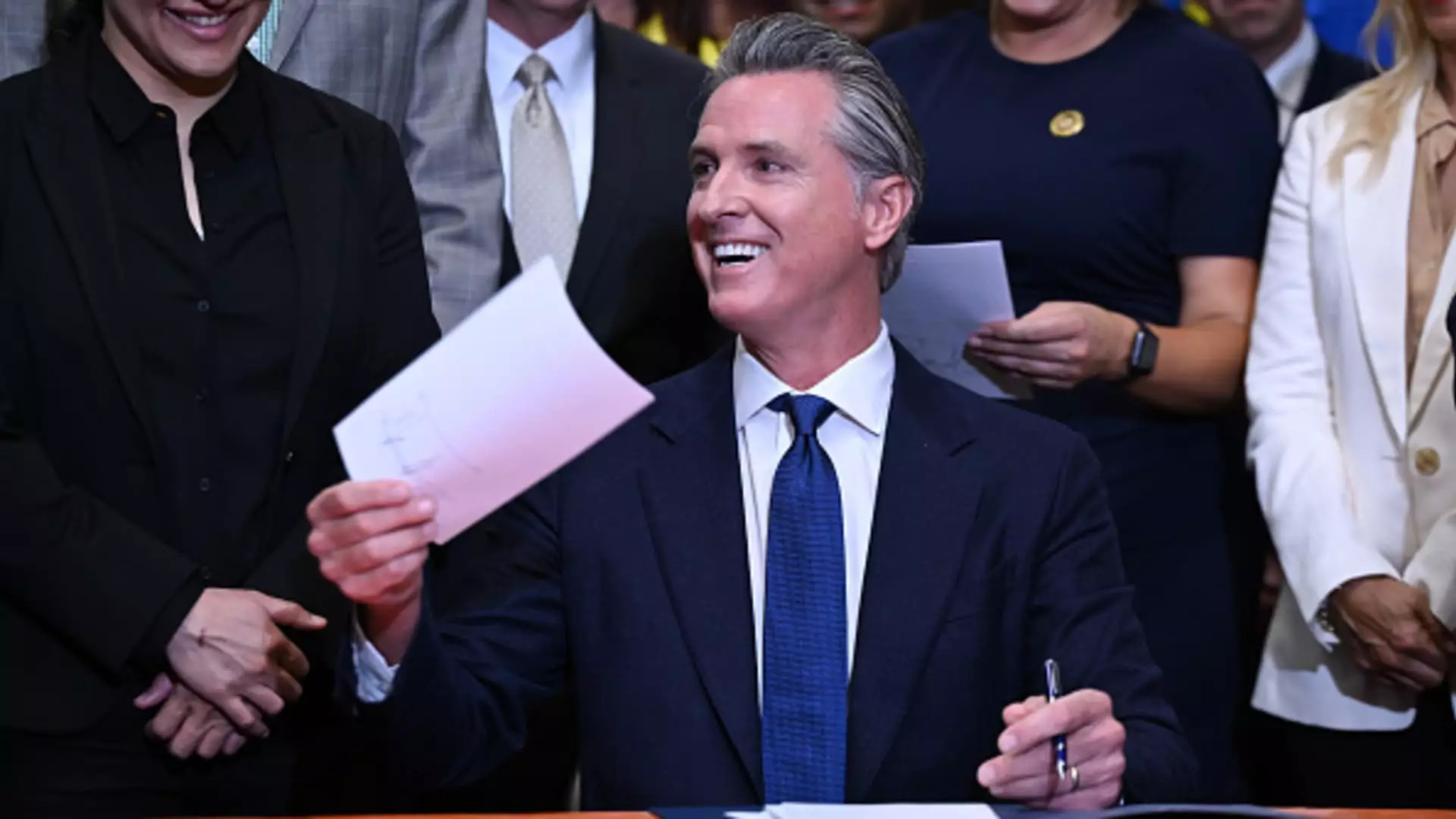California Gov. Gavin Newsom recently signed 10 new bills into law aimed at combating retail crime in the state. These new laws target shoplifting, theft from vehicles, organized theft, and the resale of stolen goods on online marketplaces. The retail industry has been lobbying for stronger action against retail theft, citing its negative impact on profits, staff, and customers. The new laws come after a period of increasing challenges posed by retail crime in the state.
One significant bill in the package, SB 1416, establishes harsher penalties for middlemen involved in organized retail crime rings. This bill was introduced in response to a CNBC investigation that highlighted the issue of organized retail crime. The law aims to increase prison time and fines for those involved in the sale, exchange, or return of stolen property, which is the primary source of income for retail crime rings.
Organized retail crime rings, such as the one run by Michelle Mack, have been a major concern for retailers. Mack, also known as the “queenpin” of organized retail crime, made millions by reselling stolen goods on Amazon at a fraction of their retail price. The arrests of individuals like Mack have highlighted the need for tougher laws to deter organized retail crime and hold those responsible accountable for their actions.
Data from the Public Policy Institute of California shows a steady increase in commercial burglary and robbery rates in the state over the past few years. This trend, coupled with the rise in shoplifting incidents, has pushed law enforcement agencies to take action against organized retail crime. The California Highway Patrol’s Organized Retail Crime Task Force has made significant arrests and recoveries of stolen items, indicating the scale of the problem.
Retailers in California have been pushing for federal legislation to crack down on organized retail crime nationwide. The National Retail Federation has been advocating for theft to be prosecuted as a federal felony, making it easier to prosecute offenders. In California, State Sen. Nancy Skinner’s bill, SB 1144, aims to prevent the trafficking of stolen goods on online marketplaces like Amazon. This bill enhances compliance criteria for high-volume, third-party sellers and streamlines the process of filing civil charges against online marketplaces selling stolen goods.
While the new laws are intended to address the growing challenges posed by retail crime, there are concerns that these measures may disproportionately impact marginalized groups. Critics of the legislation fear that vulnerable populations could be unfairly targeted or penalized under the new laws. As the debate over how to combat retail crime continues, it is essential to strike a balance between effective law enforcement and protecting the rights of all individuals involved.
The new retail crime laws signed by Gov. Newsom represent a significant step towards combating organized retail crime in California. These laws aim to strengthen penalties for offenders, prevent the trafficking of stolen goods, and address the challenges faced by retailers due to increasing theft incidents. However, it is crucial to monitor the implementation of these laws and ensure that they are effective in deterring organized retail crime while upholding the principles of justice and fairness for all.

Leave a Reply